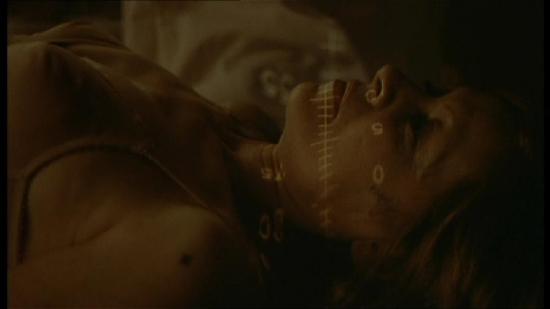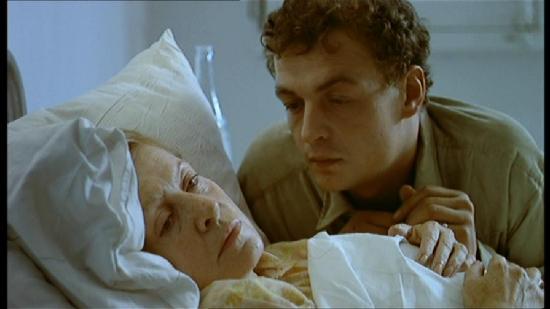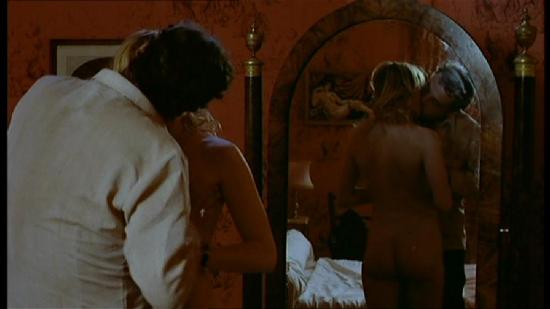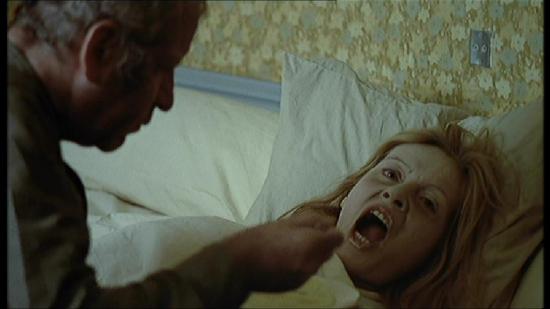La Gueule Ouverte: The Masters of Cinema Series
Introduction
Written and directed by Maurice Pialat, La gueule ouverte (or Mouth Agape) follows the friends and family of Monique (Monique Mélinand), a woman in her late middle age who is diagnosed with terminal cancer. Now in the late stages of the illness, Monique is losing weight, having trouble walking and is eventually admitted to hospital. As all they can do is make her comfortable, Monique is discharged to spend her final days at home.
Her ex-husband Roger (Hubert Deschamps) moves in to spend time with her whilst her philandering and impotent son Philippe (Philippe Léotard) works out his issues by trying to have meaningless sex with strangers and trying to keep his marriage to Nathalie (Nathalie Baye) alive.
Using many long shots without a single cut and giving the characters (aside from Roger) the same names as the actors playing them, Pialat allows for great levels of development, improvisation and naturalism.
Video
Extremely sharp and with excellent colours, the only fault I could find with this is the occasional (and slight) juddering and shimmering during some of the external panning shots. For the most part though, this is an exceptional transfer.
Audio
A very clear mono French soundtrack with excellent optional English subtitles; the film is all about dialogue and conversation and the track does a great job of conveying this.
Extra Features
This two disc set has really gone above and beyond the call of duty, crammed with interesting B-roll material, deleted scenes, a short film and interview footage. This is all great stuff, complementing the film superbly and makes this a great set based on the discs alone. If all this extra material wasn't enough, the discs come with a 36 page booklet which contains a fascinating essay by film critic Adrian Martin and some interviews with Pialat.
Conclusion
A film about someone dying of cancer is never going to be a bundle of laughs but what it can do is present a realistic portrait of a dysfunctional family coming together in grief and what effect such an ordeal has on the immediate family and this feels deeply personal.
The title obviously refers to Monique's prone state, with her increasingly weak body unable to hold the jaw closed and it is a tremendously moving performance by Mélinand who manages to do so much by doing so little. Her body is the centre of the family's turmoil with them trying to feed her and prepare for the inevitable, which is surprisingly moving when it happens.
Like Mélinand, Pialat's camera does so much by doing very little and the best scenes are when it hangs back like a neutral observer, letting the actors act and convey their turmoil, even if it is in a conversation about which flowers they can grow and which are suitable.
The Masters of Cinema Series have released some fine sets before and this is up with the best of them, a comprehensive package of an extraordinary film that anyone serious about the medium should check out.




Your Opinions and Comments
Be the first to post a comment!